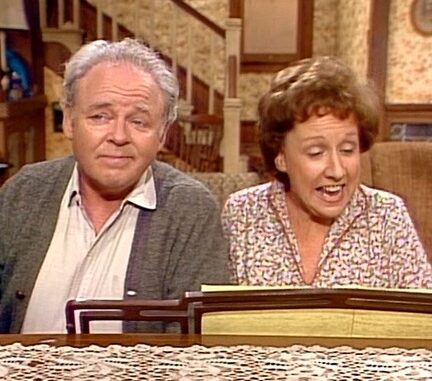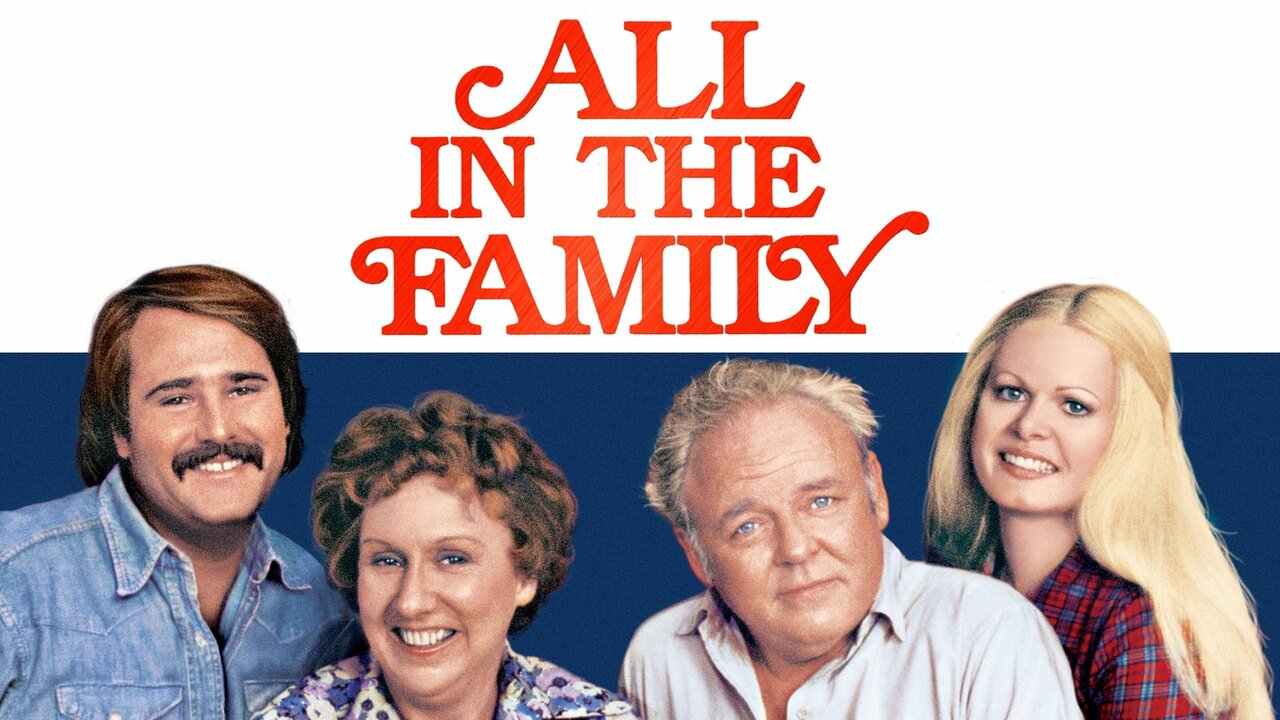
In the 1970s, television was not just a medium for entertainment—it was a reflection of society’s struggles, challenges, and the deep-rooted issues that many preferred to ignore. Among the most notable TV characters of the era was Archie Bunker, the hard-headed, often offensive patriarch of the sitcom All in the Family. Archie’s bigoted views and outdated attitudes made him both a punchline and a symbol of the prejudices that ran through America’s cultural veins at the time. But why did Archie Bunker’s bigotry matter so much, and what lessons can we draw from his character today? Let’s take a closer look at the significance of his role and why it continues to stir debate.
Who Was Archie Bunker?
Archie Bunker, played by actor Carroll O’Connor, was the main character of All in the Family, which aired from 1971 to 1979. A blue-collar worker, Archie was a self-proclaimed “true American,” set in his ways and resistant to change. His conservative values and often offensive remarks about race, gender, and sexuality made him a controversial figure. Archie’s bigotry was evident in nearly every episode, from his slurs against African Americans to his mocking of women’s liberation.
Yet, what made All in the Family groundbreaking was its approach to Archie’s bigotry. Instead of simply demonizing him, the show presented his views as a reflection of the societal tensions of the time. His ignorance wasn’t portrayed as an isolated trait but as a product of the environment he was shaped by. In many ways, All in the Family used Archie to hold up a mirror to American society and challenge viewers to confront uncomfortable truths about prejudice and intolerance.
Why Archie Bunker’s Bigotry Was Important
1. A Mirror to America’s Deep-Seated Prejudices
Archie Bunker’s bigotry was not just a quirk of his character—it was a window into the prejudices that were rampant in American society. The 1970s were a time of significant cultural change, with movements for civil rights, women’s liberation, and LGBTQ+ rights challenging traditional norms. Yet, despite these advances, many Americans—particularly those from Archie’s demographic—were resistant to these changes.
All in the Family brought these prejudices to the forefront, showing them as both absurd and deeply ingrained. Archie’s ignorance was not unique to him; it was a reflection of the larger cultural and political environment. His character gave voice to the discomfort and fear that many people felt in response to societal changes. By showcasing his bigotry, the show forced viewers to reckon with these uncomfortable truths and, in many ways, challenged them to examine their own biases.
2. The Humor of Bigotry: Satire or Reinforcement?
One of the most intriguing aspects of Archie Bunker’s character is the way his bigotry was often played for laughs. The show blended comedy with social commentary, often using humor to highlight the absurdity of Archie’s views. However, this approach raised a critical question: Was All in the Family satirizing Archie’s bigotry, or was it inadvertently reinforcing these prejudices?
While Archie was clearly meant to be a figure of ridicule, the fact that audiences often laughed at his jokes suggests that the show was walking a fine line between satire and reinforcement. For many, the humor provided an avenue for confronting deeply uncomfortable topics, but for others, it may have normalized and trivialized Archie’s bigoted attitudes. In this sense, All in the Family didn’t just depict bigotry—it made it the subject of widespread public discourse, forcing viewers to reckon with the implications of laughing at prejudice.
3. Breaking Taboos: Conversations on Race and Gender
Before All in the Family, issues of race, gender, and sexuality were often considered taboo for prime-time television. The show broke new ground by addressing these topics head-on, even if in a way that was both brash and controversial. Archie’s racist remarks, for example, were met with open criticism from his son-in-law, Mike Stivic (played by Rob Reiner), who was a counterpoint to Archie’s conservative views. Mike’s character, a liberal college student, often challenged Archie’s beliefs, making the show a battleground for ideological conflict.
The presence of such a stark ideological divide in a sitcom was revolutionary. The show didn’t just portray prejudice—it actively discussed it, giving voice to both the bigoted and the progressive sides of American society. In doing so, All in the Family helped to spark national conversations about race, gender roles, and the changing dynamics of American life. Through the lens of comedy, it made space for dialogue about some of the most contentious issues of the day.
4. The Power of Conflict in Shaping Character Development
One of the most compelling aspects of All in the Family was its use of conflict to drive character development. While Archie’s bigotry was central to his character, it wasn’t static. Over the course of the show, viewers saw moments of self-awareness and personal growth, albeit subtle and inconsistent. Archie’s interactions with his family—particularly his relationship with his daughter, Gloria (played by Sally Struthers), and his son-in-law, Mike—revealed the complexities of his character.
In many ways, All in the Family was a critique of the generational divide between conservative and liberal values. While Archie’s views were entrenched, his family members were more open to change, and through their interactions, the show depicted the tension between these two forces. While Archie’s views rarely shifted dramatically, there were moments where he was forced to confront his ignorance, providing a nuanced portrayal of how bigotry could evolve, even if only in small ways.
5. Archie Bunker: A Legacy of Social Commentary
Archie Bunker’s bigotry mattered because it was part of a broader effort to use television as a platform for social change. All in the Family was one of the first shows to depict working-class Americans in such an honest, unflinching way. The show didn’t shy away from uncomfortable subjects—whether it was racism, sexism, or the changing family dynamic. And in doing so, it became a touchstone for discussions about societal norms and the cultural shifts taking place in America.
In many ways, Archie’s bigotry acted as a catalyst for conversations about how far society had come—and how far it still needed to go. The character of Archie Bunker forced viewers to examine their own biases, question the status quo, and grapple with the reality of American life in the 1970s.
What Archie Bunker’s Bigotry Teaches Us Today
1. Bigotry Is Still a Problem in America
Although All in the Family aired more than 40 years ago, the issues it addressed are still very much alive today. Racism, sexism, homophobia, and xenophobia continue to be pervasive problems in American society. While we’ve made strides in civil rights, there is still a long way to go. The legacy of Archie Bunker’s bigotry serves as a reminder that these issues can’t be ignored, and they require continuous reflection and action.
2. The Power of Humor in Confronting Difficult Topics
One of the most lasting impacts of All in the Family is its ability to use humor to address serious social issues. While Archie’s bigotry was often played for laughs, it also provided a space for reflection. Humor can be a powerful tool for engaging with tough topics, allowing us to confront uncomfortable truths without feeling overly defensive or hostile. Archie Bunker may have been a bigot, but his character forced viewers to laugh, reflect, and ultimately reconsider their own prejudices.
3. The Importance of Representation in Media
All in the Family was groundbreaking because it portrayed the working-class experience in a way that had never been seen before. The show was unafraid to show the flaws and contradictions of its characters, particularly Archie, who represented the average American at the time. This kind of representation is crucial for fostering empathy and understanding. By depicting the humanity of even the most flawed characters, All in the Family showed that change is possible, and that we can all grow, even if we’re starting from a place of ignorance.
Conclusion: Why Archie Bunker’s Bigotry Still Matters
Archie Bunker’s bigotry mattered because it forced American society to confront the prejudices that many would have preferred to ignore. All in the Family used humor, conflict, and satire to make a lasting statement about racism, sexism, and the power of television to influence social change. While Archie was often a figure of ridicule, he also represented something much larger: a snapshot of a society in flux, struggling to reconcile its past with its future.
Today, as we continue to wrestle with issues of prejudice and inequality, Archie Bunker’s legacy serves as both a reminder and a call to action. We may not have Archie’s bigotry to contend with in the same way, but we still have to face the uncomfortable truths about the biases that persist in our society. As long as we are willing to laugh, reflect, and challenge our assumptions,
